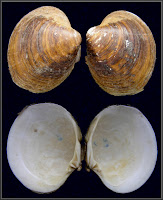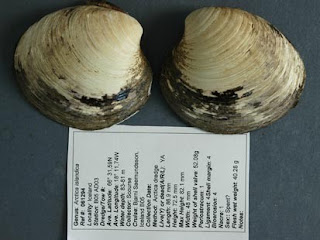 My first real job was working as a dishwasher at Robin's Restaurant in Oshkosh, Wisconsin. I was sixteen and they paid in cash. I hated every moment of that job. The busboys, who back then they were called busboys, now they're called buspersons, or food reduction engineers, would place trays on a conveyor belt and I would grab the plates of half-eaten food, wipe them down, and run them through the dishwasher. Then I would move down to the end of the line and grab a clean batch coming out. This went on at a maddening pace for hours. It was my first taste of the maniacal, Orwellian, clock-punching world awaiting me after high school graduation. I forged two decisions next to that dishwashing machine. One, I would quit this job by faking a broken leg. Two, I promised to go to college.
My first real job was working as a dishwasher at Robin's Restaurant in Oshkosh, Wisconsin. I was sixteen and they paid in cash. I hated every moment of that job. The busboys, who back then they were called busboys, now they're called buspersons, or food reduction engineers, would place trays on a conveyor belt and I would grab the plates of half-eaten food, wipe them down, and run them through the dishwasher. Then I would move down to the end of the line and grab a clean batch coming out. This went on at a maddening pace for hours. It was my first taste of the maniacal, Orwellian, clock-punching world awaiting me after high school graduation. I forged two decisions next to that dishwashing machine. One, I would quit this job by faking a broken leg. Two, I promised to go to college.Oh, but I remember my first pay day. It came from the manager's very own hand, a wad of cash wrapped in an envelope with my name on it. I knew just what I was going to do with it too. I rode the bus downtown to the now defunct Park Plaza Mall, went to the computer game store, and bought Sid Meier's Civilization for $40. It would go on to become one of the greatest computer games of all time. I was riding high. Later that week I went down to The Exclusive Company, a discount electronics store on main street, and bought a pair of floor standing speakers for $80. At home I coupled these speakers with an old turntable receiver I had unearthed in the basement and I ran audio inputs to a five disk CD changer. I joined one of those CD clubs (remember those?) and soon had eight CDs in the mail for only a penny.
Those CDs were:
Billy Joel - Greatest Hits
The Red Hot Chili Peppers - Blood Sugar Sex Magik
Tom Cochran - Life is a Highway
Pearl Jam - Ten
Mr. Big - Lean Into It
Blind Melon - Blind Melon
Nirvana - Nevermind
Bryan Adams - So Far So Good
My God, what a mix! Those CDs started, in earnest, an inauspicious, winding, complex love affair with rock music. Soon I was borrowing every album my friends had. I listened to Metallica's Enter Sandman and Megadeth's Countdown to Extinction. I bought Simon and Garfunkel and pilfered my dad's tape collection. Then I found The Beatles.
Two of my friends seemed to own every Beatles album between them. I sampled each one and then went out and bought them all, one at a time. I remember how odd Sgt. Pepper's Lonely Hearts Club Band sounded to me the first time I listened to it. John Lennon's voice sounded like he had inhaled far too much circus balloon helium. All of the songs were ludicrous. The album was disconcerting and daring and made no sense. But then I re-visted it months later and I realized that was the point of it all, and I loved it. My musical mind was expanding.
That feeling was recreated when I listened to Abbey Road. I can still remember listening to the opening track, "Come Together," as the Ringo tumbled his way around the drum kit, Paul's bass poured through the speakers, and John clapped and hissed an inaudible message ("shoot me") into the microphone.
Here come old flat-top he come grooving up slowly
He got joo-joo eyeball he one holy roller
He got hair down to his knee
Got to be a joker he just do what he please
And then Paul's last bass note just hangs in thin air...
He wear no shoeshine he got toe-jam football
He got monkey finger he shoot coca-cola
He say "I know you, you know me"
One thing I can tell you is you got to be free
Come together
Right now
Over me
It was that chorus that floored me: with the rhythm guitar playing a B minor chord, crashing in through the speakers, moving down to a G and then ending on an A only to vanish into the haze, leaving John all alone to sing "over me." It was amazing. I listened to that song over and over. I can still remember how those notes sounded through those speakers. The song felt smoky, it crept around the room, it boomed into the chorus only to pull back. Like a joker, it did what it pleased. I'd never heard anything like that before.
Fifteen years later I decided to try to re-create this experience in my living room. I wanted a new stereo, but I wanted that old-school sound, none of this five bookshelf speaker plus subwoofer crap. In my day we listened to our rock music through two giant kick ass speakers, the windows rattled, and we liked it. And so on Amazon.com I plunked down $300 for a Harmon/Kardon receiver and $150 for two large Sony floorstanding speakers. They arrived at my door in days. Admittedly, it was not quite as romantic as stuffing the equipment into the back of my 1983 Monte Carlo, driving home, and building the stereo from leftover parts in the basement, but it would have to do.
The box the speakers showed up in was laughably huge. It looked like a coffin. It reminded me of that scene in "A Christmas Story" where they lug a giant crate into the living room which contained a "major award" -- the old man's leg lamp. I unpacked the speakers, which stand four feet high. Like the ones I had in high school they are called "three-ways," which means they have a separate speaker for the tweeter, midrange, and woofer. These new speakers actually had two mid-range drivers. I hooked them into the receiver and then connected my CD/DVD player. I calibrated the speakers, selected the digital encoding to use, and popped in a test CD. To start, I opted for Dire Straits.
With a snap of Pick Wither's snare drum "Sultans of Swing" entered my living room. On the next beat he was joined by the Knopfler brothers on guitar, and John Illsey on bass. Mark began to sing:
You get a shiver in the dark
Its been raining in the park but meantime
It sounded glorious. I sat on my couch and closed my eyes. I tried every CD I could find. Eric Clapton, Def Leppard, Led Zeppelin, all sounded fantastic. I was moving back in time. I found my original Counting Crows CD and popped it in. The opening G chord and bass drum thump on "Mr. Jones" was deep and moving. The guitar picking on "Round Here" was crisp. I found my Blind Melon CD and "No Rain" sounded amazing.
All I can say is that my life is pretty plain
I like watchin' the puddles gather rain
Suddenly, all the songs that I once knew, I re-learned through the light of adulthood. The amazing thing about music may be it's ability to move you one way and then another over a distance separated by years.
I just want some one to say to me
I'll always be there when you wake
Ya know I'd like to keep my cheeks dry today
So stay with me and I'll have it made
Everything I threw at the speakers came out the other side wonderfully rich and textured. The shaker on "Billy Jean" came alive. Stewart Copeland's snare cracks on "Wrapped Around your Finger" rang through the room like rifle shots. Third Eye Blind's "How's it Going to be" sounded heart wrenching.
Then it was time for the final test: the Beatles.
I put in Love, George Martin's Beatles compilation soundtrack album which was released last year. The first song on the album is "Because," the magnificent track from the B-side of Abbey Road. This time I could hear the subtle chirp of birds in the background, the fluttering of wings, which I had not heard on this version before on Love. Then the Beatles came in with their incredibly harmony:
Ahhh--ah
Because the world is round
It turns me on
I was floored.
I went ahead to track 18, "Here Comes the Sun," also from Abbey Road. On Love it starts with a subtle intro but then George's now infamous opening guitar picking enters the left speaker and instantly you are back on familiar ground with a chill going down your spine.
Here comes the sun
Here comes the sun and I say
It's all right
And then the bass and drums tumble into the song and you are carried off on one of the most incredible musical experiences of the last forty years. How that song can fail to move anyone is beyond me but all of this was not to be outdone by "Come Together." It sounded just as seductive and serpentine as it had fifteen years ago from my $80 speakers. I sat in the middle of the living room and let the whole song wash over me. I could feel every kick on Ringo's bass drum, I could follow Paul's winding bass line, and the chorus was as powerful and troubling as it was on that first listen from my little bedroom.
In my advancing age I tend to romanticize the Beatles, a group which certainly needs no extra heralding. I did not grow up in the 60s, a time of revolution and questioning, a time which the Beatles lent their considerable talents to transforming. I discovered the Beatles on an old cassette tape my dad had stashed away in the garage. But they started a type of revolution for me. Their songs formed a backdrop for my own confusing years, and for my own journey. I am consistently amazed that a group writing in a specific time can reverberate as clearly as they did in their original context.
Sitting down for one last song I popped in my old Sgt. Pepper's Lonely Hearts Club Band CD. I skipped to track 13. The subtle strumming of a rhythm guitar. The introduction of a piano, bass, and drums. John's ethereal vocals echoing through the room.
I read the news today oh, boy...
About a lucky man who made the grade
There was a time when everything was a first--your first kiss, your first car, the first time you ever really loved an album. The innocence ushers them in, and you are ushered out. There is a simple pleasure in re-creating, just for a moment, how that all felt. Every morning I try a few new songs, and check out before hauling myself off to work. It is no stretch to say that I have come a long way since sitting in my room at sixteen. I may have changed but those songs haven't. When I dwell in their energy, their joy and sorrow, without apology, like I did years ago, even time has to take a seat and wait.



